TCRNo11 // Mike Hall Bursary Riders
July 26, 2025
Words by Jake Thorpe
Photos by Matt Grayson
Ambition, Absurdity, Inspiration, and Fresh Cheese.
A product of the COVID hiatus, in 2022 the Mike Hall Bursary was born. It returns this year to support four riders towards the start line at Santiago. Honouring Mike’s unshakable principle of accessibility – that races should be decided on the aptitude, attitude and athleticism of individuals, not on their budgets – the bursary awards support to riders who could otherwise not afford to compete, and a voice to those who might be otherwise underrepresented in the field of ultracycling.
So let’s meet this year’s riders.
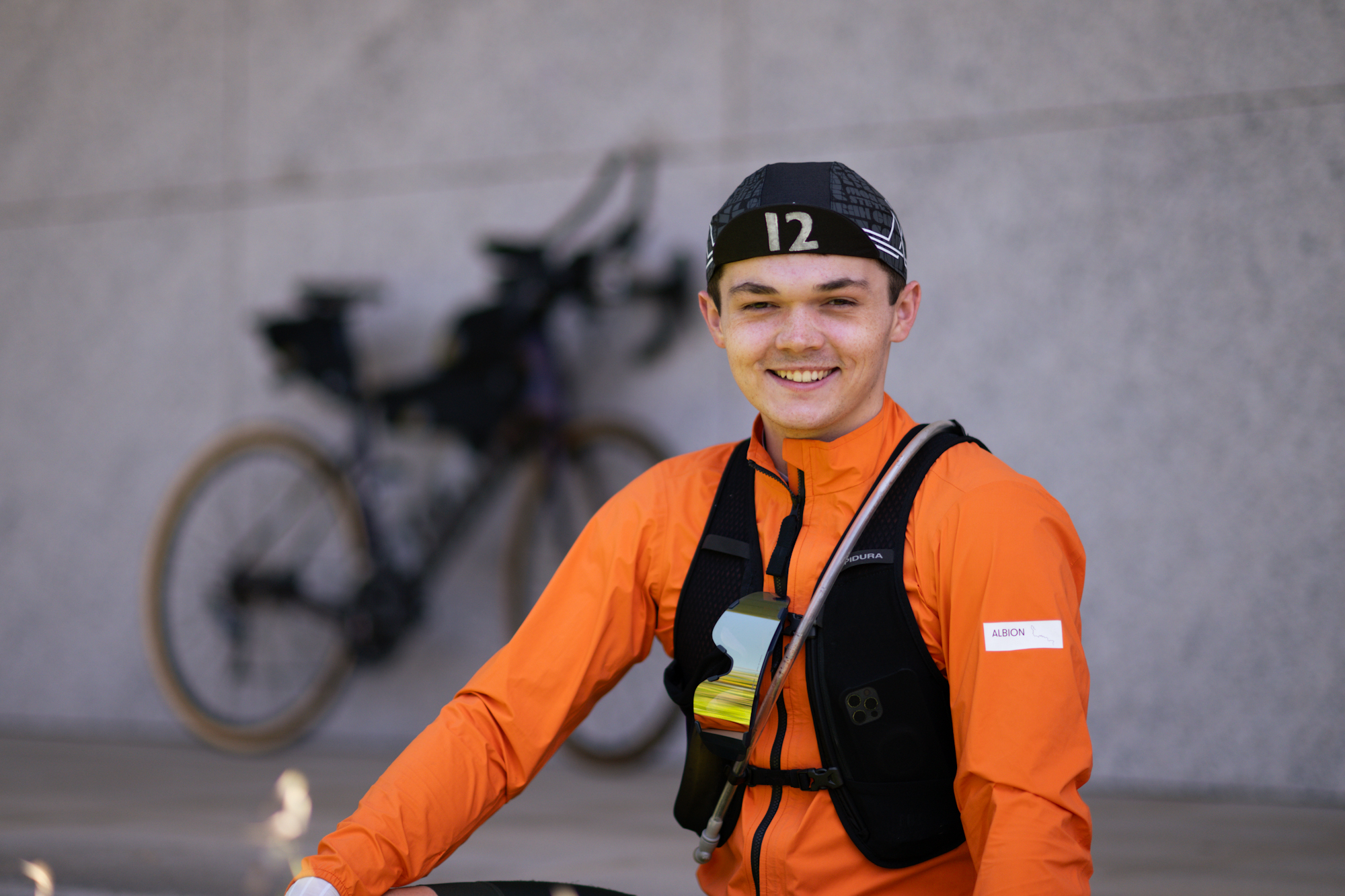
Joe Howe (012)
As a kid, like lots of kids do, Joe liked to cycle. Unlike most of these kids, however, this pastime has now led him to the cusp of a four-thousand-kilometre quest across a continent. So what happened?
At 18 – just five years ago – Joe was involved in a car crash and spent two weeks in a coma. When he woke, he’d lost many of his basic motor functions. The physical scars, with work, gradually healed, but the mental scars, the chemical consequence of a traumatic brain injury, remained. Progress on this front was far less tangible. But something helped.
Cycling to work at 21 reignited Joe’s childhood fascination with the bicycle; the same fascination that captures the imagination of all young riders – the adventure, the self-sufficiency and, ultimately, the freedom. As Joe rode, the psychotic episodes slowly subsided. He came back into himself.
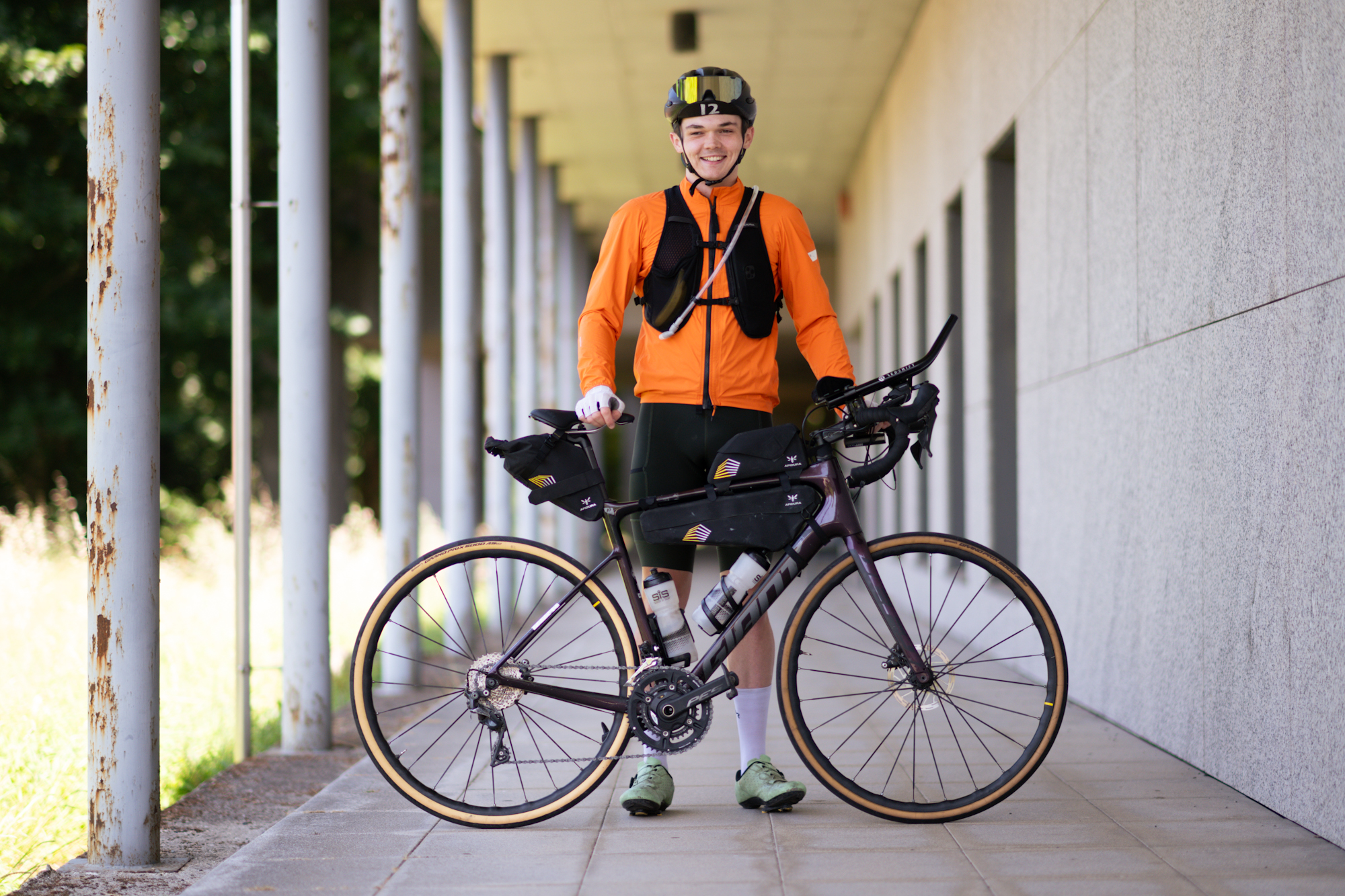
Before long, Joe was riding twelve-hour training weeks, setting his sights on ever greater challenges, ever further riders. Two years ago, he came across the TCR documentary, Onboard the Transcontinental Race, and something switched. It resonated with his own experiences on a bicycle. He knew he had to try it.
The preparation for a challenge of this scale puzzles even the most experienced riders. For those arriving fresh to the scene, the task is enigmatic in the extreme. Left to his own devices, Joe admits, when it comes to training, he tends towards exuberance. His first marathon, for example, was in Windermere – a tricky enough course for anyone, but particularly tricky when one decides to ride four hundred kilometres to the start line from Cardiff on the eve of the race.
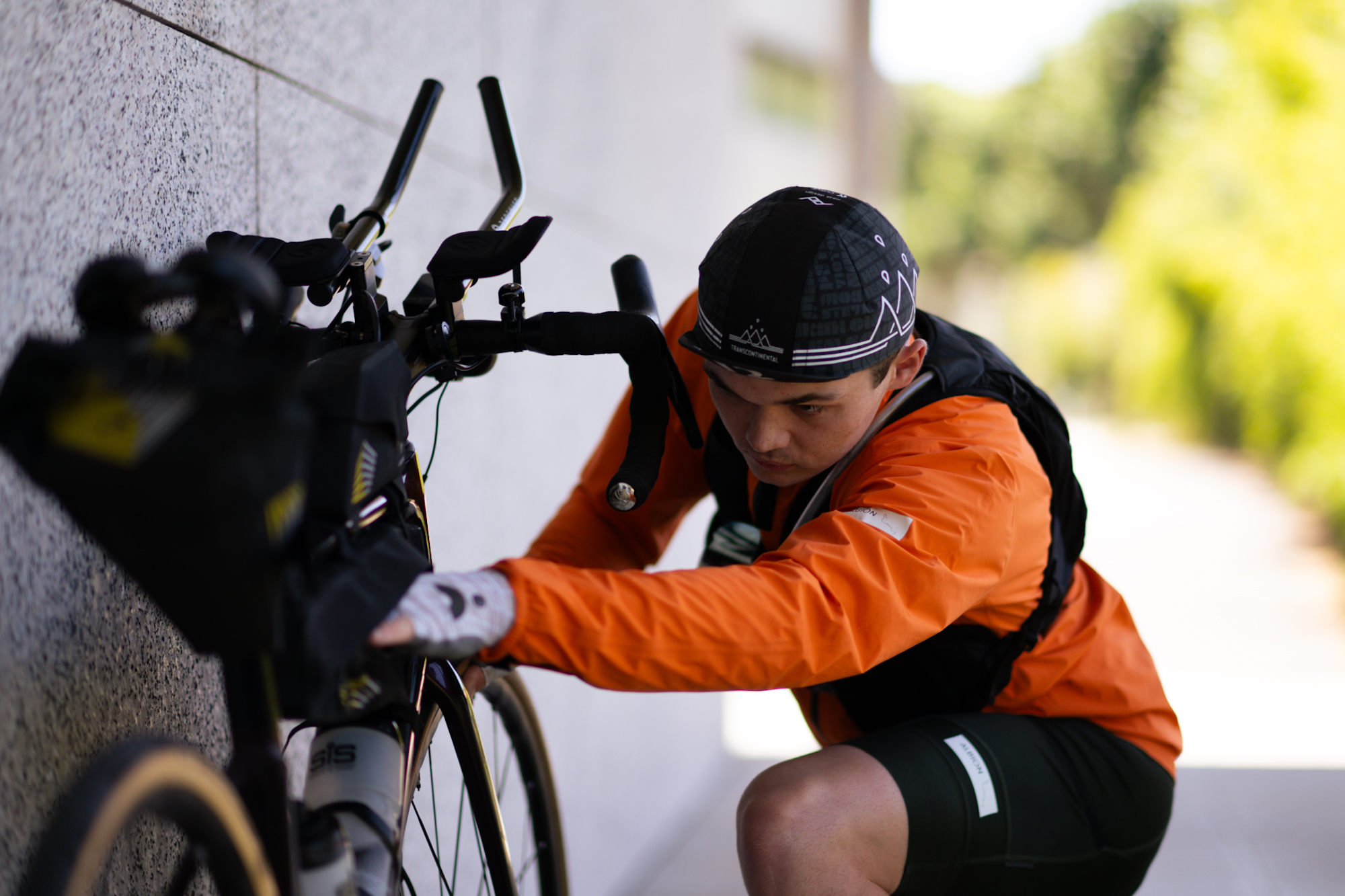
Luckily for Joe, Robbie Britton – who is helping all the bursary riders this year with training, nutrition and racing strategies – is on hand to reign him in. Coach Robbie’s advice to Joe is simple: relax. But it’s hard to relax when you have bold ambitions. This is – to use Robin Gemperle’s framework – Joe’s “experiment” year; all bets are off. When we spoke, Joe had his gaze firmly set towards the front of the race – a significant challenge, no doubt, but not unprecedented from a TCR debutant.
Joe will be riding his ruby red Giant Defy – recently named Rudy – which he’s whittled down to race weight. To quote Coach Robbie, however, “there’s no point in being fast or lightweight if you don’t reach the finish line”. Joe has taken this advice on board and is aiming to ride a sustainable race. But only time will tell if these strategies, carefully honed over the last months, will come to fruition when the mist descends and the race begins.
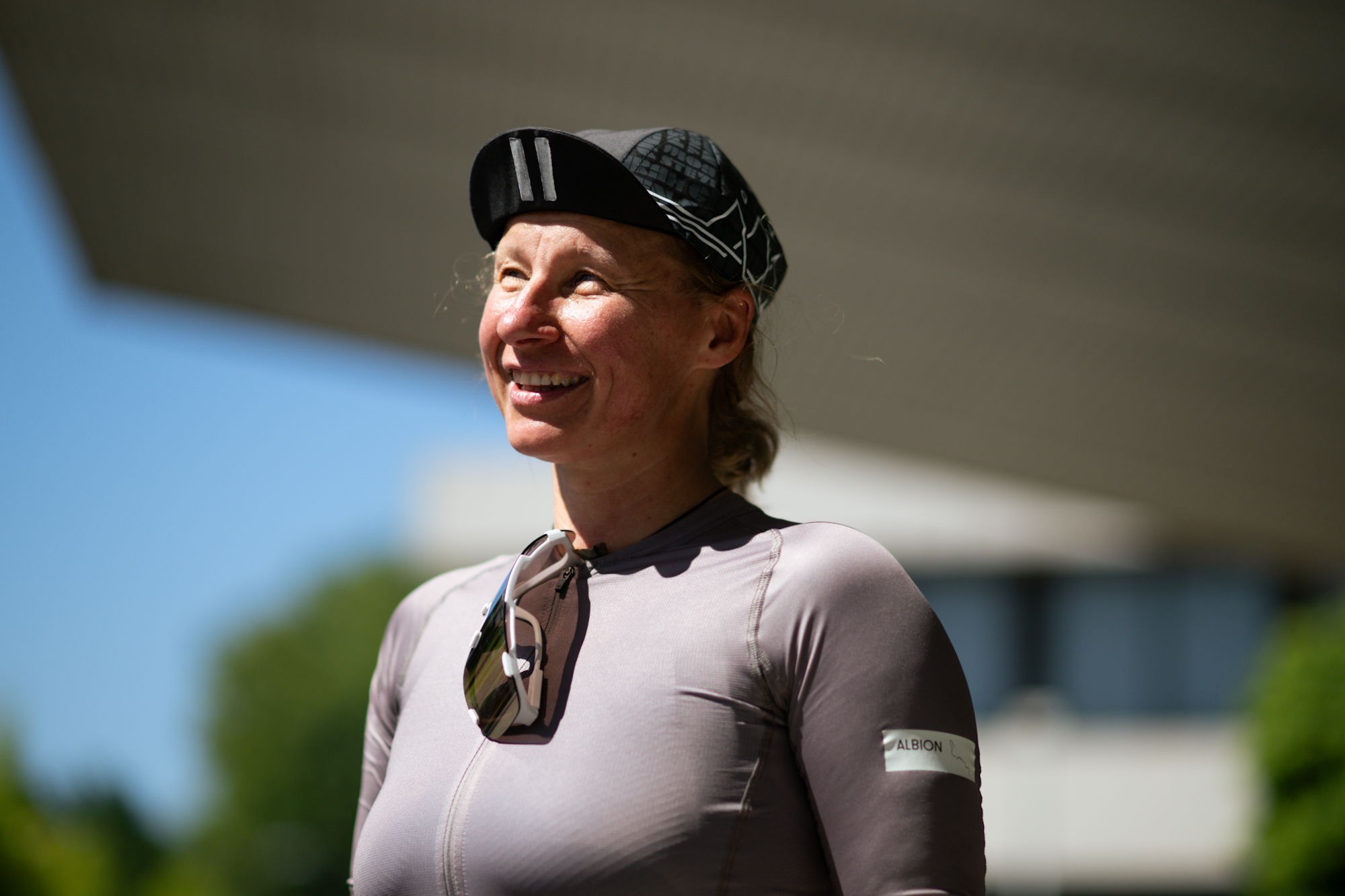
Ewa Trzetrzelewsk (011)
Polish mother of three Ewa is no stranger to the world of ultra. For years, she’s tackled challenges that fully warrant the prefix “absurd”. From rafting for thousands of kilometres down rivers, to completing quintuple Ironmans – for anyone whose Latin derivations are a little rusty, that’s five on the trot – Ewa has spent countless hours chipping away at her perceived limits, and her egoic barriers, in an effort to strike her own bedrock. In her own words, “Ultra’s like a good meme – on the surface it’s funny and simple, but if you really think about it, you discover it’s a whole life condensed within a nutshell”.
Another rider hooked by the lure of the 2019 TCR documentary – watched, in typical style, during a gruelling session on the turbo trainer – Ewa immediately knew she’d found her story. Without hesitation, she cast off her upcoming challenge – a decuple Ironman; the meaning of which, by now, I’m sure you can decipher – and applied for the Mike Hall bursary to make this dream a reality.
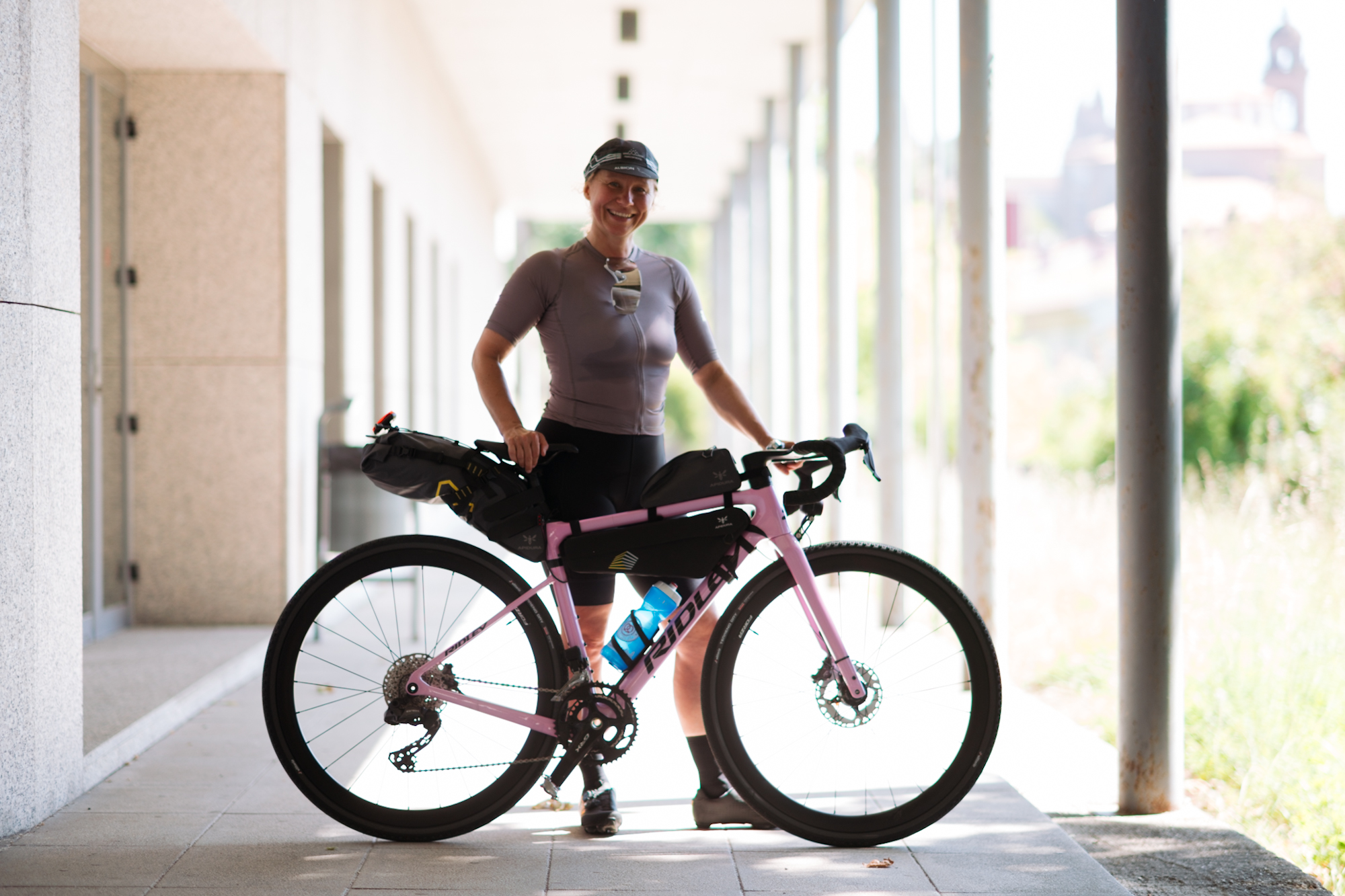
Ewa’s goal for TCRNo11 is simple: to start. For her, life is too short for “maybe someday”. But her ongoing intention for the race is more complex. She hopes to “grab every moment” – something that’s far from inevitable after a few hundred hours in the saddle. Fortunately, she has a good sense of humour. Reflecting on her experiences so far, she mused that “in ultra, the humour trumps the muscles”.
Supporting her on this mission, in place of her old road bike, is a new, hot pink Ridley, which she has christened Ridka. Ridka has been equipped with all the necessaries for a Transcontinental epic, and is festooned with bottle cages to ward off dehydration – public enemy number one during the southern summer. Beneath all the bottles, Ewa is convinced that, in Ridka, there beats the heart of a warrior. On this front, cyclist and steed appear very much aligned.
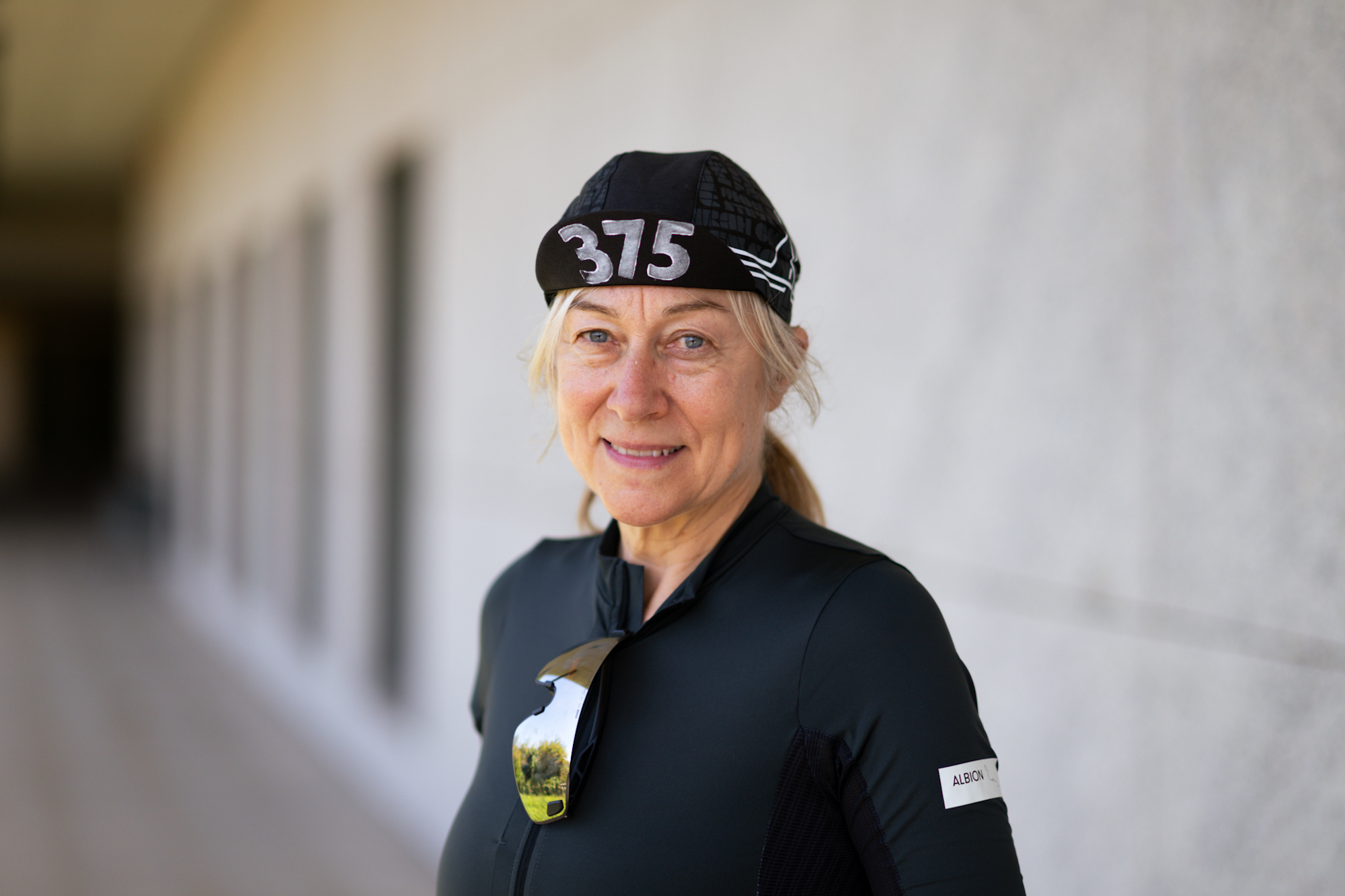
Lis Gardner (375a)
Lis won’t be alone in experiencing exuberant trepidation – the oxymoronic sensation that creeps up on all those closing in on their first Transcontinental Race. She can, however, draw a deep confidence from the fact that, of those lining up on Santiago’s start line, Lis has already endured more than most. She knows just how deep the channel of human perseverance runs.
Following a breast cancer diagnosis in 2018 and its subsequent treatment, against the instinct of her oncologist, Lis used cycling as means to carve out some clearer headspace. The effect on her symptoms and the impact on her outlook were potent. Her oncologist changed his mind. Cycling quickly became a central pillar of her recovery and, on the last day of her sixteen-month treatment plan, she celebrated by cycling the length of the UK with her sister – supported by their brother – climbing three mountains in the process.
Lis first discovered the TCR early on in her cycling career, when one of the members of her club returned from a pairs effort at TCRNo6. At that point, a possible future in which she might be one of those attempting such a journey was beyond comprehension. But, as she so frankly put it, “Cancer challenged me, and now I’d like to challenge myself.”
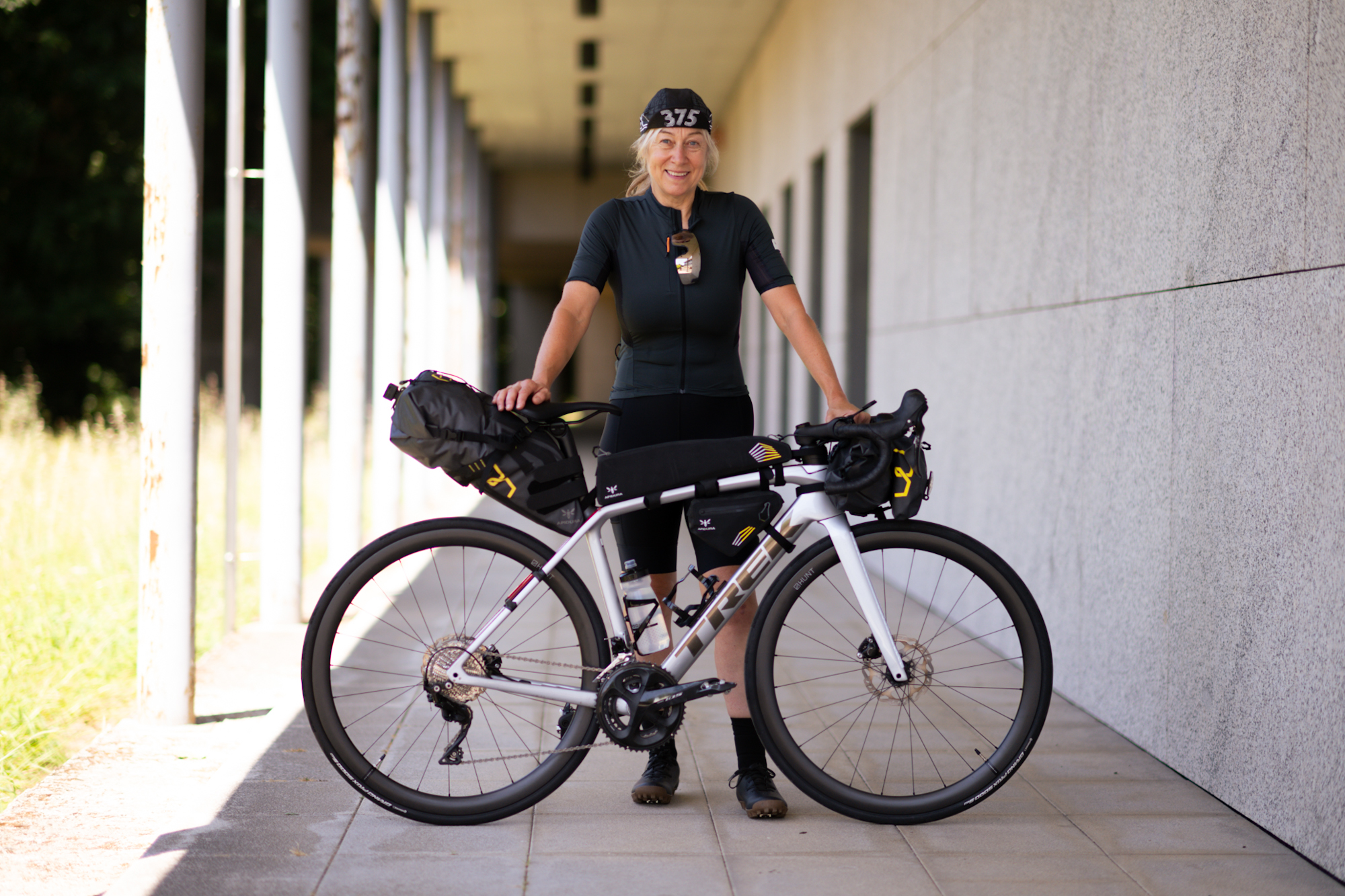
Lis’ riding often includes a strong outward expression. Last year, with friends, she rode from Birmingham to Mallorca, raising £27,000 for the charity Cure Leukaemia; her upcoming Transcontinental effort will be raising money for the hospital that treated her; and her greatest goal for the TCR is to inspire others to embark on a life-changing journey. Lis knows the power of inspiration. Last year, while cycling in Girona, she met Robin Gemperle after his commanding win at the Trans Pyrenees. In the wake of that brief encounter, she knew her fate was sealed – the Transcontinental was hers for the racing.
Many of Lis’ friends appear not fully to understand the extent of what it means to race the TCR. They seem to picture restaurant dinners and nightcaps in dimly lit hotel bars to round off a day’s riding. Her decision not to take “outfits” has evoked total bewilderment amongst her peers.
Sensibly, Lis is seeking advice elsewhere, in particular from Lost Dot’s own Andrew Phillips. But, rather surprisingly, his sentiments seem to echo those of her friends. “Don’t underpack.”
There’s nothing worse, he says, than being stranded without the necessary kit for the sake of a featherweight rig. When it comes to kit, Lis will be sticking to what she knows. And when it comes to terrain, her trusty carbon Trek will be sticking to what it knows too, namely tarmac.
Lis will be joined – rather delightfully – by her close friend Loz, who seems to buck a trend when it comes to understanding the scope of the upcoming challenge. At least, Lis hopes he does. The pair are aiming for a GC finish and have their speakers fully charged to serenade them up the longer climbs.
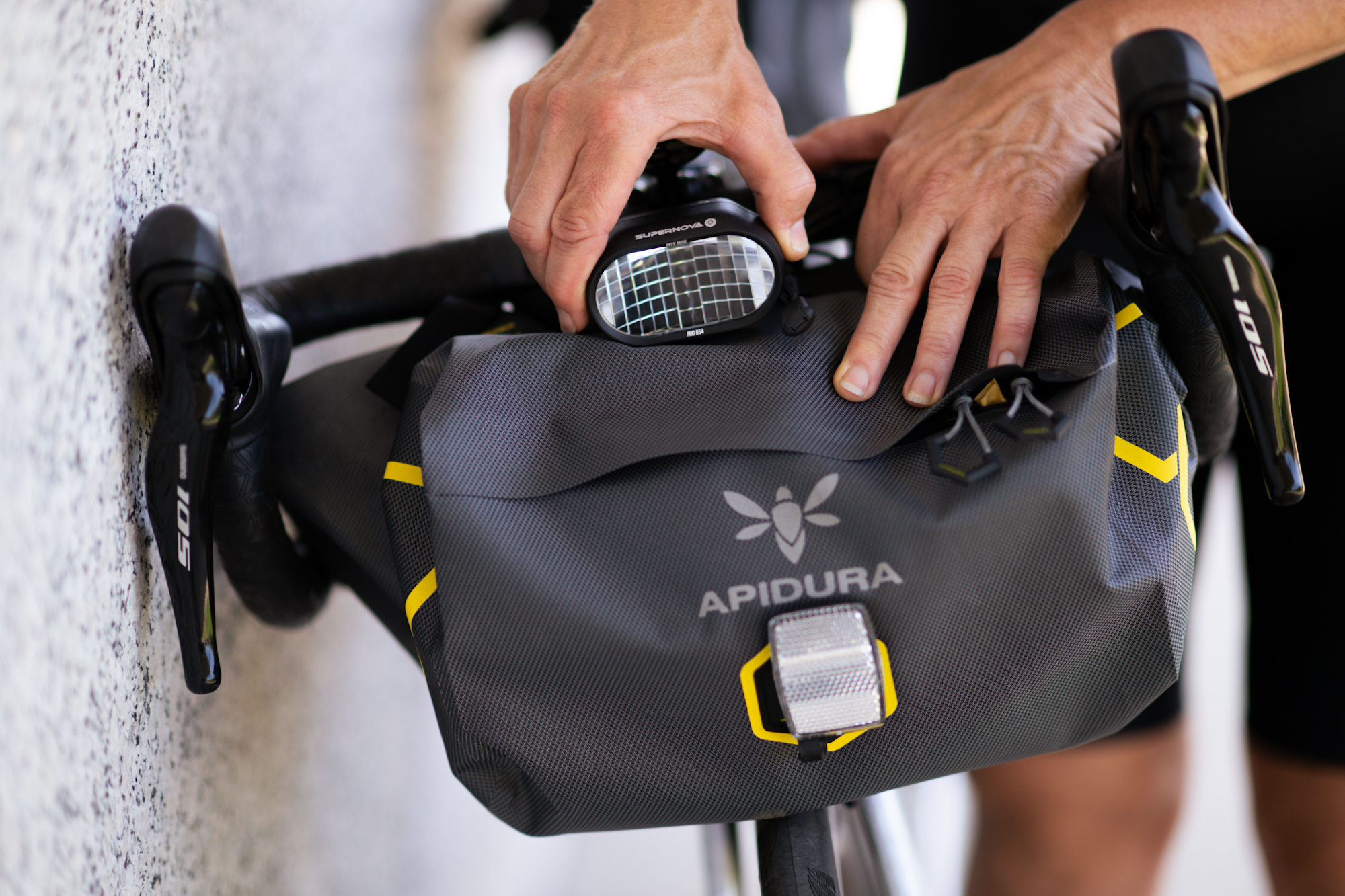
Jules Muzard*
Like many of the characters of our favourite stories – Achilles, Obelix, or The Joker, perhaps – Jules is convinced that, as a child, he too was submerged in some sort of potion. Unlike those stories we know, however, this potion didn’t grant Jules invincibility or superhuman strength, nor did it dye his hair green and give him an odd sense of humour. Instead, Jules’ potion granted him the gift of energy.
When we spoke, our fifteen minute time slot soon stretched to thirty, and then on to an hour. Jules was a fountain of knowledge, educating me on everything from the best cheese for ultra-cyclists – fresh mozzarella, in case you were wondering – to a lesser-known Sufi order of Islam called Bektashism, headquartered in Albania.
So far, in his 26 short years, Jules has found the time to study history in Paris, work for three years as a lawyer, become an elected official in his hometown, and emigrate, for a while, to Albania, to work for their government on the protection of national heritage sites. In life, he admits, ultra-cycling tends to take a back seat.
But a back seat in Jules’ life is the equivalent of pole position in the lives of many others. Despite placing relatively low on his list of priorities, Jules has still managed to bikepack for over a decade, touring most of the Eurovelo routes with his dad and his sister. He has also spent several years cutting his teeth in the ultra scene – cramming up to four events into each of the last three years. And he hasn’t done half badly. In the first edition of Nomadian Rhapsobike in 2023 – a 2,200 kilometre free-routed ultra from the base of Mont Ventoux to the black mountains of Montenegro – Jules arrived, untrained, and took first.
Ultra, for Jules, is a recalibration. It puts him in the perfect state of deprivation to allow the relative ease of normal life, when it returns, to flood him with gratitude. He knows that for others, life isn’t so straightforward. Three years ago, Jules lost a friend – someone who, he says, couldn’t make sense of the world. It’s no wonder that his motto is la vida e preciosa – life is precious.
Jules’ bike is also pink, and she too has a name: Stamina. Funnily enough, stamina often comes hand in hand with something that, by his own admission, Jules is less good at: discipline. As a teen, having snuck off to visit his girlfriend of the time, he’d return home in the morning fully intending to tackle an hour of maths revision in penance. Invariably, he’d sleep through the lot, and confesses he’s not been much of a mathematician since. We can only hope that the sleep training of his teenage years pays dividends come Santiago – especially given that the week before the race – a week which will, for many, consist of deep relaxation – will, for Jules, be spent dancing the night away at an enormous festival.
For Jules, in the TCR, discipline will be key. In a race of this scale, energy only takes you so far; it’s discipline that must kick in when that energy runs out.
*Unfortunately, Jules has had to withdraw from the race due to family circumstances. His energy will be a notable absence from the start line.
